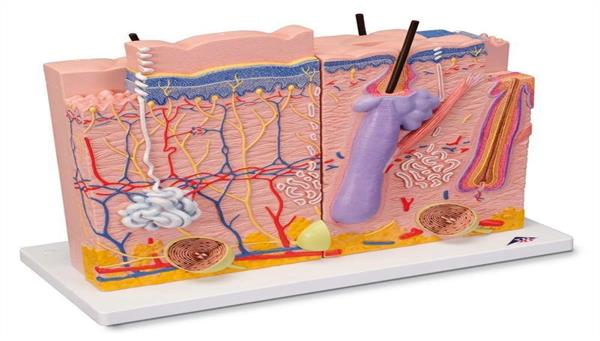Why Do I Have Saggy Skin?
Skin Sagging
The largest organ in our body is the skin. The skin is very flexible and adaptable. Proteins such as collagen and elastin make the skin stronger, flexible, tighten and tense. There are various reasons for saggy skin. With age, gravity and loss of elasticity usually cause saggy skin. Also, weight loss leads to sagging skin. As a result of losing subcutaneous fat, skin cannot shrink and loses its elasticity, so skin sagging occurs.
For example, as a result of weight gain and fat accumulation, skin extends and stretches. When you lose weight, tightening of your skin becomes limited. Excess fat in your stomach area inflates like a balloon and tightens your skin. If you burn the fats (or you lose weight), your skin cannot change back to its original state. Your skin loses its flexibility and the link between your abdominal muscles and your skin diminishes over time.
What are the factors affecting skin sagging?
Sagging skin can occur after the bariatric surgery. Therefore, it is a disadvantage of this surgery. Although there is some information about this subject, we can say that much more is needed.
- Age
With age, gravity and loss of elasticity usually cause saggy skin.
- Overweight
The higher your weight above your ideal weight, the higher your skin extends and stretches. Therefore, it is very difficult to get back to your starting point at this stage.
- Yo-yo effect and weight fluctuation
Yo-yo effect and weight fluctuations over many years have a negative effect on skin elasticity.
- Rapid weight gain and loss
Rapid weight gain and loss affect the skin adaptability. Do not forget that the skin is a living organ.
- Cigarettes
The cigarette speeds up skin aging. Wrinkles and sagging become visible in the skin.
- Nutrition and water intake
You need to pay attention in your diet above all water intake and then proteins rich in collagen, vitamin A for protection from the sun, vitamin C for the formation of collagen, vitamin E with the antioxidant properties, vitamin B for liveliness, zinc, omega 3, omega 6, etc.
- Genetics
Genetics play a crucial role in the skin sagging and structure. Some people take no action for sagging skin and they don't have it, others take action for this problem and they have it.
- Sports and exercises
The skin which is a living organ renews its cells with sport and exercise. As you pack on some muscle, there is tighten under your skin.
- Sun exposure
Excessive sun exposure may lead to skin damage with sun’s harmful UV rays and occur blemishes and spots on the skin.
- Pregnancy
Pregnancy may lead to sagging skin, especially in the abdominal area.
Negative effects of post-bariatric surgery
According to the researches, sagging skins generally occurs on the abdomen, upper arm, inner thigh, and chest areas. Saggy skin can also occur on the cheeks, upper back, and above the knee. If the pre-surgery BMI (Body Mass Index) is high and rapid weight loss occurs, the possibility of sagging skin increases. It has been shown that women suffer from sagging skin more than men. It has also been reported that patients who underwent bariatric surgery during puberty may experience mental health problems because of skin sagging.
Skin sagging is also stated as "wrinkles" and "limpness." Patients feel ashamed about skin sagging or don't feel like it anymore. Many choose clothes they can hide their tummy and arms. Some prefer loose-fitting pants or dresses. Women try to hide the chest area with the bra. Some patients (0.1% of them) find sagging skin much worse and more embarrassing than being obese.
Approximately 40% of post-bariatric surgery patients report that sagging skin leads to some problems such as fungal infections, eczema, abdominal lesions, unpleasant odors, itching, sweating, and personal hygiene issues.
Skin sagging has also been reported as an obstacle to privacy and sexual intercourse. Patients conceive of their excess skins as something impersonal and think they do not belong to them. This also affects their self-esteem. Also, some patients have problems taking part in physical activities, hobbies, and social activities because of skin sagging, despite having great weight loss results.
Biochemist
Alper Habip
References
- Silke K. Schagen, 1, Vasiliki A. Zampeli et al. Discovering the link between nutrition and skin aging, Dermatoendocrinol. 2012 Jul 1; 4 (3): 298–307. doi: 10.4161/derm.22876
- Baillot A, Asselin M, Comeau E, Meziat-Burdin A, Langlois MF., Impact of excess skin from massive weight loss on the practice of physical activity in women. Obesity Surgery 2013; 23(11): 1826-34.
- M. A. Farage, K. W. Miller, et.al. Intrinsic and extrinsic factors in skin ageing: a review, International Journal of Cosmetic Science, Volume 30, Issue 2 Pages 79–154, April 2008,
- Christina Biörserud, Excess Skin After Bariatric Surgery, Patients’ perspective and objective measurements, Department of Surgery, Institute of Clinical Science Sahlgrenska Academy at University of Gothenburg, Sweden, 2015.













